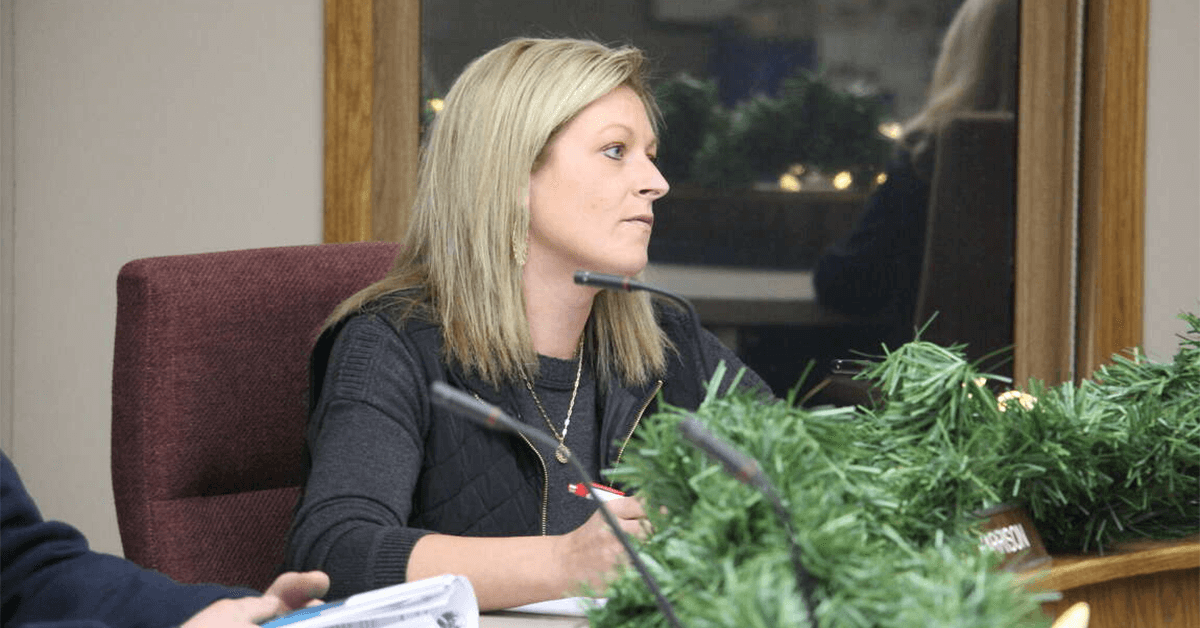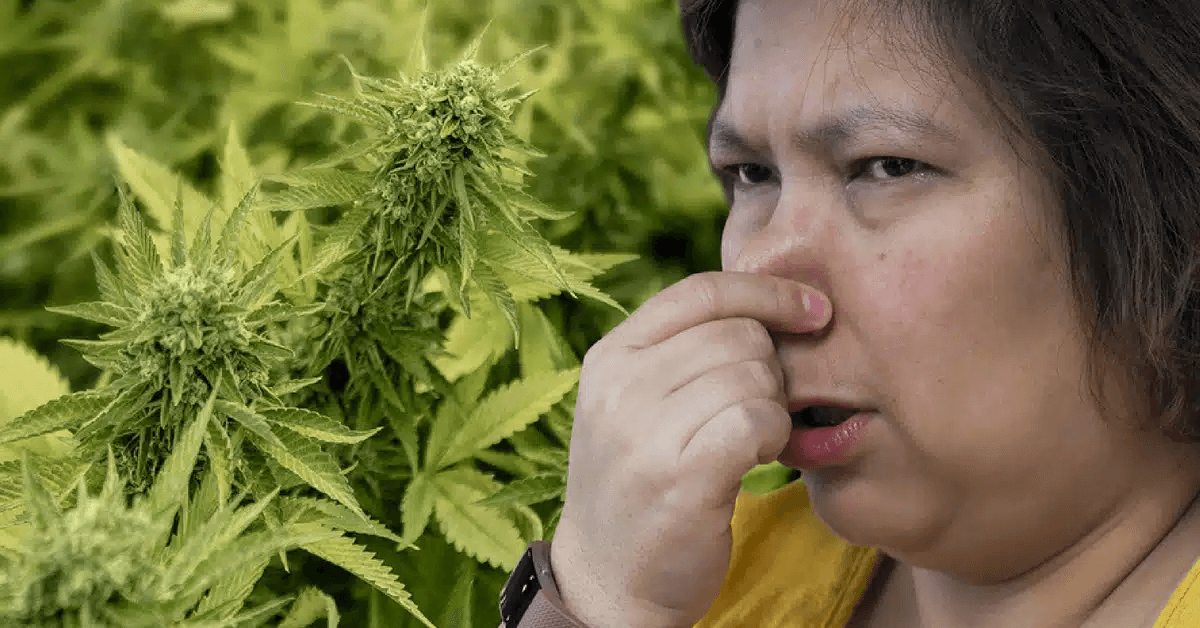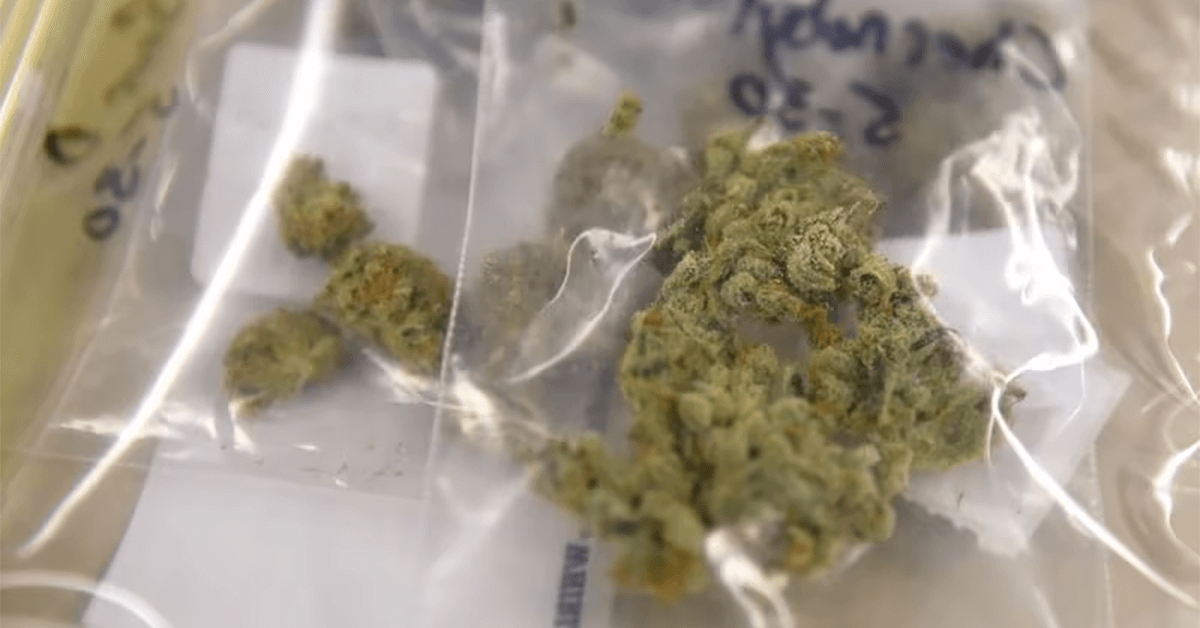Michigan Cannabis Market Hits Record $3 Billion in Sales for 2023

The Michigan marijuana market experienced unprecedented growth in 2023, setting new sales records and significantly impacting state revenue. According to the latest data from Michigan's Cannabis Regulatory Agency (CRA), the state's legal marijuana retailers sold over $3 billion worth of cannabis products, marking a significant increase from the previous year.
In December alone, Michigan witnessed its strongest sales month ever, with licensed businesses achieving $279.9 million in total sales. This figure surpasses the previous monthly record of $276.7 million set in July. The cumulative sales for 2023, encompassing both adult-use and medical purchases, reached a staggering $3,057,161,285.85. This represents a substantial growth of about one-third more than the 2022 annual total of $2.29 billion.
The lion's share of 2023's sales came from recreational marijuana, which increasingly dominated the market as the year progressed. In December, adult-use retailers accounted for approximately 99 percent of all legal cannabis sales, totaling $276.7 million, while medical marijuana dispensaries contributed a mere $3.2 million.
Remarkably, the state's annual marijuana sales equate to about $305 per Michigan resident. It's important to note that this figure includes sales to non-resident customers. The 2023 sales figure even surpasses the gross domestic product of 51 countries, illustrating the massive scale of Michigan's cannabis market.
State officials highlighted a 49 percent increase in tax revenue from legal marijuana compared to the previous year, surpassing revenue generated from alcohol sales. Michigan's marijuana market benefits from one of the nation's lowest excise tax rates at 10 percent, in addition to a 6 percent state sales tax. In October 2023, marijuana excise tax alone generated $52.4 million in tax revenue.
Despite this remarkable growth, Michigan's annual marijuana sales have yet to reach the peak of $3.1 to $3.2 billion anticipated by some market analysts. Michigan's legal adult-use marijuana sales commenced in 2019 following voter approval in 2018.
Consumer preferences in December leaned heavily towards flower products, which constituted about 45 percent of total sales. Vape cartridges, inhalable concentrates, edibles, shake and trim, and other concentrates followed in popularity.
The state continues to see a steady influx of new business license applications, with 90 received and 71 approved in December alone. By the end of 2023, Michigan had 2,170 licensed cannabis businesses in the adult-use market, primarily growers, alongside 751 retailers, 250 processors, and other entities.
A survey of adult-use licensees revealed a plurality from high-income households, with 188 reporting annual incomes of $200,000 or more. In a significant move towards equity, the CRA launched a social equity grant program, allocating $1 million to support eligible marijuana businesses in education, business needs, or community reinvestment.
Interestingly, the average cost of marijuana in Michigan has remained at record lows, with an ounce of adult-use cannabis costing around $98, a significant decrease from $180 in December 2021. Additionally, policy changes have been implemented, including the end of pre-employment marijuana testing for most government employees and new laws facilitating trade between state-licensed marijuana businesses and tribal cannabis entities. Legislative efforts are also underway to legalize psychedelic plants and fungi for non-commercial purposes.
This growth trajectory of Michigan's marijuana market underscores the evolving landscape of cannabis sales and regulation, promising continued expansion and economic impact in the years to come.
First Draft of Recreational Marijuana Ordinance Presented in Bad Axe

In a recent development at the Bad Axe City Council meeting on January 16th, City Manager Rebecca Bachman presented the first draft of the recreational marijuana ordinance. While the ordinance was not initially listed on the meeting's agenda due to timing constraints, it was nonetheless shared with council members for review and discussion during the final board comments.
Bachman explained the absence of the ordinance from the agenda, stating, "I did not get it in time to put it on this agenda as it would not have given you enough time to look at it. It will be on the very next meeting, and now you have plenty of time to look through it." This draft, prepared by the city attorneys, is slated for a detailed discussion at the council's next meeting on February 5th.
The forthcoming meeting will primarily focus on deliberating the contents of the ordinance, providing council members an opportunity to propose amendments. Bachman highlighted that the current draft primarily addresses operational regulations, leaving the zoning aspects for future discussions.
Should the council find no significant need for amendments, the ordinance could potentially be voted on as early as the February 5th meeting. Following council approval, the ordinance would then be forwarded to the Bad Axe Planning Commission to establish zoning regulations for marijuana facilities.
Despite a slight delay, Bachman reassured that the process is progressing smoothly and remains on track with the projected four- to six-month timeline for final approval. She expressed optimism about the ordinance's approval, which would allow interested parties to begin applying for licenses.
Bad Axe Police Chief Shawn Webber, in a previous report, noted the economic benefits of such facilities. Specifically, he mentioned that two types of recreational facilities, namely 'retailers' and 'micro-businesses,' could generate substantial revenue for the city. Based on data from 2022-2023, the city anticipates an average revenue of $51,841 per license, a figure that has risen since the legalization of recreational marijuana in Michigan.
Recreational Marijuana Proposal Sparks Discussion in Harbor Springs City Council

In a recent city council meeting in Harbor Springs, Michigan, a significant topic of discussion emerged regarding the potential introduction of a recreational marijuana dispensary in the city. City Manager Victor Sinadinoski briefed the council on a letter from Ypsilanti attorney Anderson Grandstaff, who is advocating on behalf of an unnamed client for a citizen's ballot initiative to allow a recreational marijuana outlet in Harbor Springs.
The attorney's approach involves a proposed ordinance that would permit a single marijuana retail establishment within the city, subject to annual license renewal. This initiative would involve a detailed application process, including a scoring system for selecting a licensee, an application fee cap of $4,900, a required distance of at least 1,000 feet from schools, and the consideration of a community benefits program to support individuals adversely affected by past marijuana laws.
Currently, Harbor Springs City Code explicitly prohibits the operation of any marijuana establishments within its limits. To place this ordinance on the ballot, proponents would need to gather signatures from 25% of the city's eligible voters.
During the public comment section of the meeting, several residents, including Allison Larson, expressed opposition to the idea. Larson emphasized the availability of marijuana in nearby Petoskey and expressed concerns about the potential negative impact on Harbor Springs' community quality. She also noted that similar efforts by Grandstaff had been initiated in other Michigan towns like Coldwater and Howell.
Mayor Matthew Bugera acknowledged that the only immediate advantage of such an ordinance would be financial benefits from the state. Resident Kathy Motschall suggested that if there is genuine interest in pursuing this initiative, the attorney and his client should focus on signature gathering, leaving the city to address the matter if it gains sufficient traction.
Marinda Miller also voiced her opposition, expressing her alarm at the ease of introducing marijuana into the community and raising concerns about issues like fentanyl in the area.
As of now, the Harbor Springs City Council has not moved forward with any decision, maintaining the status quo while the debate on this contentious issue continues among its residents.
Lucid Green and Common Citizen Collaborate to Improve Consumer Information in Cannabis Sector

Lucid Green, a platform specializing in item-level tracking for the cannabis industry, has formed a strategic partnership with Michigan-based cannabis company Common Citizen. This collaboration is set to introduce new educational tools aimed at both recreational and medical cannabis consumers in Michigan, leveraging advanced QR-style technology to improve access to product information.
The primary goal of this partnership is to enhance transparency in the cannabis supply chain, enabling consumers to access detailed information about products more easily. This initiative is expected to help consumers make more informed decisions, aligning with their individual preferences and values.
Both Lucid Green and Common Citizen emphasize the importance of immediate access to accurate product information for consumers. This new alliance underscores a shared focus on fostering trust and transparency within the cannabis industry.
Common Citizen, noted for its focus on product safety and customer experience, aligns with these objectives. Michael Elias, CEO of Common Citizen, commented on the collaboration: "Partnering with Lucid Green is a step towards emphasizing transparency in the cannabis industry. Our combined efforts are directed at helping consumers navigate the market more confidently, identifying products that meet their requirements."
Larry Levy, founder & CEO of Lucid Green, also spoke on the partnership: "Lucid Green's ethos centers around building trust through transparency. Working with Common Citizen, we are committed to providing consumers with precise information about cannabis products, which is crucial for informed decision-making."
The partnership extends to the LucidID app, offering users an interactive experience with products. For more details about this collaboration and to explore the Citizen product experience on the LucidID app, visit the following link: https://app.lucidgreen.io/products/bVwY3xSXbJ7viUzwJaqNfG/
Planning Commission Denies New Marijuana Facility in Lapeer Amid Odor Concerns

Residents and officials in Lapeer, Michigan, have been expressing their concerns over the persistent marijuana odor emanating from cultivation facilities located on Saginaw Street at the former Lapeer Grain Company property and on S. Court Street, just south of the railroad tracks. This ongoing issue has prompted Lapeer officials to plan discussions with the operators of these grow facilities in an effort to find a resolution.
The Lapeer Planning Commission, responding to these complaints, has shown hesitancy in permitting further expansion of marijuana grow facilities in the area. In a recent meeting, the commission voted 5-3 against granting a special land use permit to a Livonia businessman who intended to establish an 11,400-square-foot organic medical marijuana cultivation site at 39 W. Genesee St. This site, once home to Thick's Glass and currently flanked by the Exclusive-brand marijuana dispensary and Arnold's Auto Wash, was proposed by Richard Swain for the development of the new facility.
Swain, accompanied by architects and engineers, presented plans for a new building equipped with advanced carbon-based air filtration systems, designed to purify the air within sealed rooms before its external release. Swain emphasized his commitment to adhering to city standards and expressed concern over being unfairly targeted, especially given the existing nearby facilities with known odor issues.
However, Planning Commissioner Doug Roberts pointed out that previous assurances from other growers about odor control had proven unreliable. Jennell RaCosta, the Planning Commission Chairwoman, and Commissioner Joshua Atwood voiced their preference for relocating such operations to industrial parks, distant from residential and other business areas. The decision to deny Swain's permit was supported by Commissioners Anne Schenck, Joshua Atwood, Jennell RaCosta, Marty Johnson, and Doug Roberts, while Commissioners Catherine Bostick, Debbie Marquardt, and Austin Kelly opposed it. Lapeer City Manager and Planning Commissioner Mike Womack was not present for the vote.
Further addressing these concerns, the Planning Commission has proposed that the Lapeer City Commission consider amending local marijuana regulations. This includes a suggestion that all marijuana cultivation facilities should require special land use approval, and a reevaluation of zoning ordinances to limit such facilities to areas zoned for heavy industrial use. This recommendation aligns with Michigan's marijuana laws, which stipulate that cultivation facilities be situated in industrially zoned areas. However, in Lapeer, the blending of marijuana businesses with other commercial and industrial operations, particularly along East Genesee Street and Imlay City Road, has complicated the issue.
Special land use permits are critical for local authorities to enforce regulations, such as controlling odors, and can be revoked if businesses fail to comply. Currently, Lapeer hosts six marijuana cultivation facilities, some of which have faced odor control issues. These facilities, established in older buildings, were not subjected to the special land use review, which limits the city's authority to demand modifications for odor mitigation.
Lapeer City Manager Mike Womack is expected to propose a six-month moratorium on new marijuana business applications in Lapeer during a city commission meeting scheduled for Tuesday, January 16th. This pause is intended to allow for a thorough review of zoning and enforcement policies related to marijuana cultivation facilities, aiming to address the concerns of local residents and maintain community standards.
Viridis Laboratories' Lawsuits Dismissed in Michigan Marijuana Recall Dispute

In Michigan, a judge from the Court of Claims recently dismissed two lawsuits related to a significant marijuana recall in 2021, which involved approximately 64,000 pounds of cannabis products valued at $229 million. This recall, one of the largest in the state's history, affected about 60% of all marijuana products in Michigan.
The issue originated from the Michigan Cannabis Regulatory Agency's (CRA) decision on November 17th, 2021, to recall marijuana tested by Viridis Laboratories between October 10th and November 16th, 2021. Viridis Laboratories, a licensed safety lab, is responsible for ensuring the safety of cannabis products for public consumption. The CRA's action was prompted by discrepancies in testing results for aspergillus, a potentially harmful mold, in cannabis products.
Claire Patterson, MRA Scientific and Legal Section Manager, testified that they observed failures in aspergillus testing in the state's monitoring system, which were subsequently reported as passing by Viridis Laboratories without any remediation by growers. Aspergillus, if detected in cannabis, must be eradicated and the product retested before sale. Further investigations by other licensed labs confirmed the presence of aspergillus in products passed by Viridis, leading the CRA to question the reliability of the lab's results for various marijuana products. The extensive recall caused considerable market disruption and additional costs, as all recalled products needed retesting before sale.
Viridis Laboratories, in response, filed lawsuits against the CRA and several employees, alleging that the recall was motivated by a "vendetta" due to Viridis's substantial market share in lab testing. The company argued that its due process rights were violated as the recall prevented sales without allowing Viridis to contest the allegations.
A previous ruling by a Court of Claims judge partially sided with Viridis, distinguishing between marijuana tested in their Lansing lab, which was the source of the contaminated product, and their Bay City lab. The recall was subsequently revised to exclude products tested in Bay City.
However, the recent dismissals in the Court of Claims signal a significant development, marking the end of most of the related lawsuits. Despite this, the dispute between Viridis and the CRA continues in Michigan's Office of Administrative Hearings and Rules court, with hearings scheduled to resume soon. Additionally, Viridis is pursuing financial compensation through the courts for sales losses and costs incurred due to the recall. One lawsuit remains unresolved in Ingham County Circuit Court.
Viridis's attorney, David R. Russell from Foster Swift Collins & Smith law firm, expressed confidence in revealing the truth through the court process and holding the CRA accountable. CRA spokesman David Harns commented on respecting the judiciary's rulings while the agency continues its regulatory duties.
Furthermore, the CRA has separately accused Viridis of manipulating THC potency results in cannabis products, a claim which Viridis denies and is currently contesting in the state administrative courts. The level of THC in marijuana products is a crucial factor affecting their value, as higher THC levels typically command higher prices due to their increased psychoactive effects.


 Helpful Links
Helpful Links